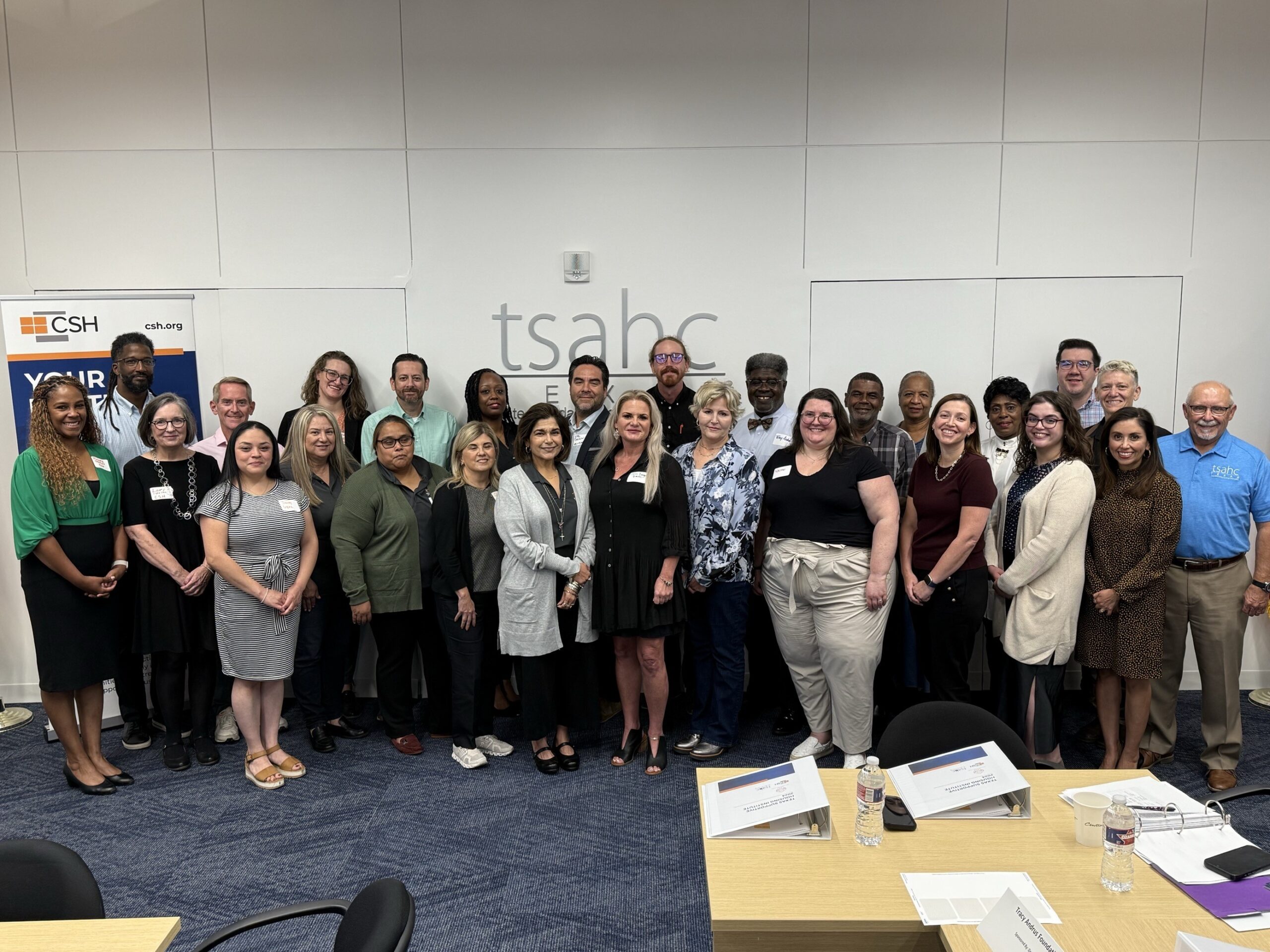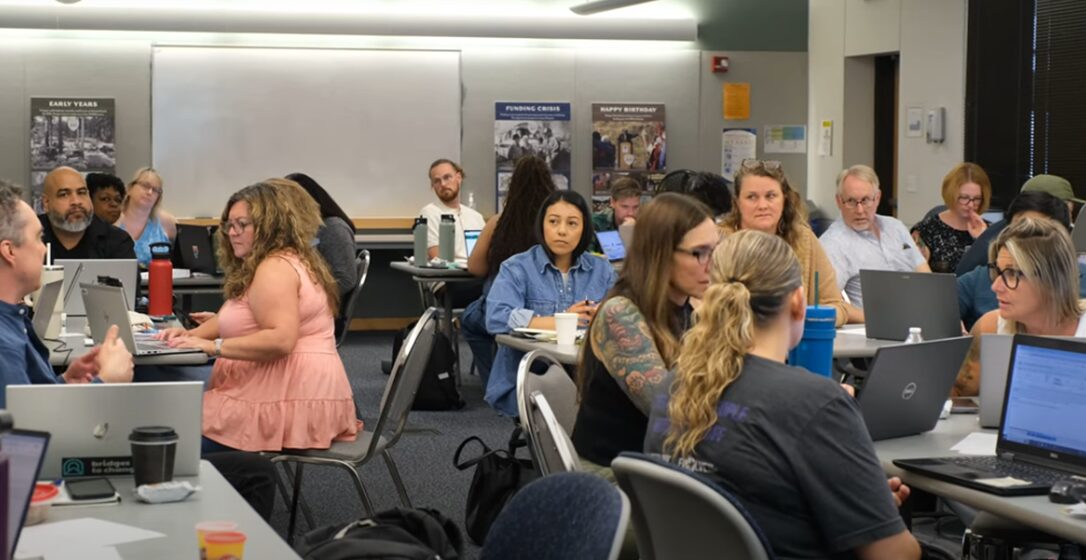Media Contacts:
IHCDA – Ian Hauer,463-241-7879 or iahauer@ihcda.in.gov
CSH – Jesse Dean, 347-931-0132 or jesse.dean@csh.org
Indianapolis, IN | February 13, 2025 – Indiana Housing and Community Development Authority (IHCDA) and Corporation for Supportive Housing (CSH) today announce the 17th Indiana Supportive Housing Institute that will train four teams representing housing and service providers across the state in developing high-quality supportive housing.
The four-month program aims to finalize development plans for approximately 60 high-quality affordable and permanent supportive housing units for Hoosiers experiencing homelessness. Teams will receive intensive technical assistance to navigate the complex process of building and operating high-quality, affordable housing and supportive services.
“The Indiana Supportive Housing Institute is an opportunity for IHCDA to promote housing stability for those experiencing homelessness,” said Matt Rayburn, chief real estate development officer at IHCDA. “It is critically important that IHCDA and our partners align affordable housing developments to the current needs in communities. We congratulate those selected for participation in the Institute and look forward to collaborating with them to advance supportive housing in the state.”
“We congratulate the teams selected for the Institute and applaud their dedication to building healthy and vibrant communities,” said Lori Phillips-Steele, Indiana director at CSH. “Our Institute model fosters collaboration between developers, property managers and service providers, helping them build stronger connections and streamline processes to better serve people experiencing homelessness. Each new home and collaboration created through the Institute transforms lives and builds safer, resilient neighborhoods.”
IHCDA and CSH co-lead the Indiana Supportive Housing Institute based on CSH’s national “institute” curriculum. Through intensive and interactive workshops, participating teams learn how to navigate the complex barriers to development and funding, such as restrictive zoning laws, high land and construction costs, regulatory hurdles, and how to deliver high-quality, trauma-informed services that help people thrive in stable housing. Teams also cover CSH’s quality standards, making them eligible for the CSH Quality Supportive Housing Endorsement.
Investing in supportive housing drives economic growth by generating employment opportunities and stimulating local businesses. It also plays a crucial role in fostering community well-being by addressing homelessness and its related challenges.
The selected teams include developers, property managers, service providers, people with lived experience, and other critical project partners. Their proposed multi-family housing properties promise to transform the lives of people experiencing homelessness.
To date, CSH and IHCDA have collaborated on 16 Indiana Supportive Housing Institutes with seventy teams and 1,533 new affordable and supportive housing units built throughout the state. An additional 504 units are in the construction or funding phases.
“When communities invest in affordable and supportive housing, they offset resources that otherwise would go to pay for costly emergency systems and institutional care that ultimately fail to address why people fall into homelessness in the first place,” said Deborah De Santis, president and CEO at CSH. “IHCDA has been an invaluable partner in accelerating supportive housing development for Indiana communities. We are grateful for their ongoing collaboration and support.”
The counties and collaborating teams selected for the 17th Indiana Supportive Housing Institute are:
Indianapolis, Indiana/Marion County:
- Horizon House: Serving as team leader, owner, and supportive services provider.
- Englewood Community Development Corporation: Serving as developer and property management entity.
Goshen, Indiana/Elkhart County:
- Oaklawn Psychiatric Center: Serving as team leader and supportive services provider.
- Lacasa, Inc.: Serving as developer, owner, and property management entity.
Terre Haute, Indiana/ Vigo County:
- Mental Health America West Central Indiana: Serving as team leader, owner, developer, and property management entity.
- Hamilton Center, Inc.: Serving as supportive services provider.
Columbus, Indiana/Bartholomew County:
- Volunteers of America Ohio & Indiana: Serving as team leader, developer, owner, and supportive service provider.
- Herron Property Management: Serving as property management entity.
- United Way of Bartholomew County: Serving as a community partner.
- First Presbyterian Church of Columbus: Serving as a community partner.
About IHCDA
The Indiana Housing and Community Development Authority (IHCDA) provides housing opportunities, promotes self-sufficiency and strengthens communities in order to build an Indiana with a sustainable quality of life for all Hoosiers in the community of their choice. For more information, visit: in.gov/ihcda.
About CSH
CSH (Corporation for Supportive Housing) advances affordable and accessible housing aligned with services by advocating for effective policies and funding, equitably investing in communities, and strengthening the supportive housing field. Since our founding in 1991, CSH has been the only national nonprofit intermediary focused solely on increasing the availability of supportive housing. Over the course of our work, we have created more than 467,600 units of affordable and supportive housing and distributed over $1.5 billion in loans and grants. Our workforce is central to accomplishing this work. We employ approximately 170 people across 30 states and U.S. Territories. As an intermediary, we do not directly develop or operate housing but center our approach on collaboration with a wide range of people, partners, and sectors. For more information, visit www.csh.org.







